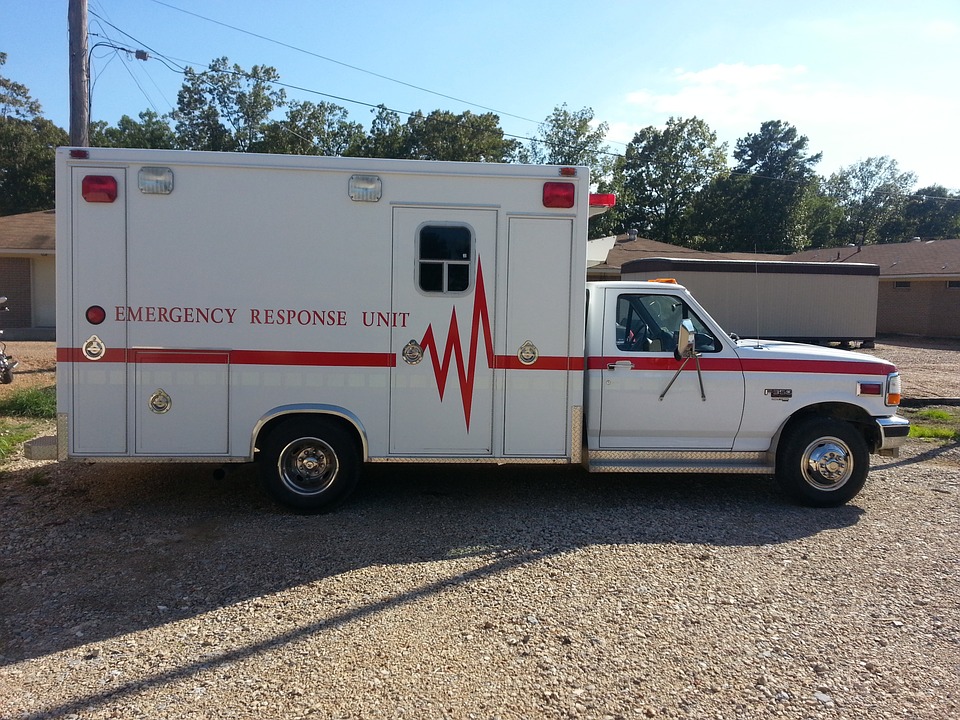Donna Martin, 73, was in her yard in Morgan County one day last summer when a wasp stung her.
Martin, a grandmother and active tennis player, suffered a severe allergic reaction. She soon went into cardiac arrest.

Her young granddaughter called 911. But both of the rural county’s ambulances were out on other calls. A volunteer firefighter arrived at Martin’s Madison home and administered CPR while they waited for an ambulance. The house was about a mile from Morgan Medical Center.
An ambulance from neighboring Greene County arrived nearly 30 minutes later, said Martin’s daughter, Ellen Sims.
Martin was transported to the Morgan hospital, where “they brought her back to life,’’ said Sims. Later she was transported to Piedmont Athens Regional. Martin died there that evening, just about five hours after the wasp sting, Sims said.
This tragic case, among others, has helped drive General Assembly discussion around House Bill 264, which would establish some statewide policies on emergency medical services.
Sims said the House bill would put a stronger spotlight on ambulance response times.
The legislation, as passed by the House, would require EMS services to give quarterly reports on the number of 911 calls received and the number answered by their ambulance company. The bill also would require reporting of a unit’s response time after an emergency call, plus details about the response.
But on Monday, a Senate committee significantly weakened the bill, including removing the required reporting of response times.
Wait times for ambulances have become a major issue, and not just in rural areas. The city of Dunwoody, in the Atlanta suburbs, got so many complaints from residents about long wait times that it declared an EMS “emergency,’’ asking to break off from DeKalb County’s ambulance zone and create its own.
DeKalb recently put out a bid for an ambulance provider that includes mandated response times, ranging from under 12 minutes for critical emergency calls to less than 30 minutes for non-emergency calls, according to the Reporter Newspapers.
House Bill 264, as passed in that chamber, would require the 10 local EMS coordinating councils in the state to establish conflict-of-interest policies, barring council members connected to ambulance providers from voting on contracts. Council meetings would have to abide by the state’s open meeting laws. And the Georgia Department of Public Health would have to make recommendations to each council on setting clear accountability standards for its EMS zone.

The Senate Rules Committee on Monday stripped out the open meeting provision and the response time reporting requirements, as well as the accountability standards, from the EMS bill. The new version passed the Senate unanimously Tuesday.
Rules Committee Chairman Jeff Mullis (R-Chickamauga), who presented the bill in the Senate, declined to be interviewed on the changes, but said through a spokeswoman that he wanted to send the legislation into a conference committee with the House.
The lead sponsor of the legislation, Rep. Bill Werkheiser (R-Glennville), said after the Senate vote, “I’m disappointed for the victims. I feel they have been disrespected. The committee processes have been disrespected.” He added that he was taken “totally by surprise’’ by the Senate’s gutting of the bill.

Werkheiser said last week that the House proposal has been revised nine times, mainly to allay the concerns of EMS providers. “My door has been very open,’’ he said. He added that he has heard ‘‘testimonies from folks all over the state who say they have not been served well by their ambulance provider.
“Victims say they can’t get information’’ about wait times, Werkheiser said. “We’re asking that it be reported in a public format.’’
The conference committee will seek to iron out the differences between the House and Senate versions.
Officials in the EMS business say that while some areas of the state are very transparent on response times, others are not.
Transparency and accountability
The ambulance provider in the Morgan County case, National EMS, says it supports transparency “100 percent.’’
“We do reports to the county on a quarterly basis,’’ said Huey Atkins, director of operations for National. “We support transparency, accountability.’’ He also said he’s not opposed to barring EMS officials from voting on contracts.
The Martin case, Atkins said, “was terrible, tragic.’’
“Every county has a limited number of ambulances,’’ Atkins said. In the Martin situation, he added, “we had three calls come in within nine minutes.’’

The number of ambulances is a matter of local funding, he noted. Running a third ambulance 24/7 would cost $500,000, he said.
Ambulance companies, Atkins said, face problems that may not be obvious to the public. They have to deal with some people who call for non-emergencies – using the ambulance “as a taxi.’’
And the companies also have to contend with a national shortage of paramedics and EMTs.

Kimberly Littleton, executive director of the Georgia Association of EMS, told GHN in a statement last week — before the Senate changes to the bill — that “Georgia’s EMS community remains committed to the decades of work our profession has done to make Georgia a national leader in education, standards and delivering unrivaled pre-hospital care.’’
“The current substitute to HB 264 reflects the Legislature’s willingness to listen to their local communities and ambulance services that work tirelessly night and day to save Georgians, and not out-of-state companies wishing to the change the system. We appreciate Rep. Werkheiser and his colleagues for their work. “
The legislation is being pushed hard by a group called the Georgia Ambulance Transparency Project, which lists as members several individual groups: Athens 4 Everyone, Athens Area Citizens for Better EMS Response Times, Common Cause Georgia, Georgia Conservatives in Action, Georgia Ethics Watchdog, and Main Street Patriots.
“A small handful of entrenched interests who are threatened by the prospect of reform have fought this transparency initiative at every step of the way, but victims, industry experts and vendors alike have helped convince legislators of both parties of the absolute imperative to change the way Georgia regulates and administers ambulance services across the state,” said Julianne Thompson, a Republican strategist who’s a spokeswoman for the Transparency Project. “Our champions grow in number every day, because these reforms are just common sense: Someone with a possible financial stake shouldn’t be directing taxpayer resources.’’
Strong emotions
In the wake of the Martin case and another response problem, Morgan County conducted a review of response times, the Morgan County Citizen reported in late November.
County Manager Adam Mestres and Atkins have maintained that the county’s two designated ambulances meet the mandated response time standards, the Citizen reported. But the newspaper also said Atkins conceded that out-of-county ambulance response times were not factored into the quarterly assessment to calculate response time averages.
After Martin’s death, the county manager issued this statement to WSB-TV:
“The County reviews National EMS call data on a quarterly basis to ensure compliance within the scope of the contract for services. Public Safety response throughout the County is fluid and with that we cannot predict time or severity of an emergency. What we can do however, is review public safety data on a continuous basis to help determine if additional resources are needed whether temporary or permanent. With the resources the county has, we strive to provide the best service we can to our community.”

Mestres said Monday to GHN that the county has reviewed 911 calls for 2018. “Based on the data provided, it appears that National EMS is meeting their contractual obligations for response times to EMS calls in Morgan County,” he said.
Sims told GHN that she was “pleased to see our elected officials’’ engaging with the issue.
Her mother’s death, Sims said, “has been devastating to my family.’’
The ambulance wait for her mother was “not an isolated incident – far from it,’’ she added. EMS response times, she said, “are definitely a problem in Georgia.’’

